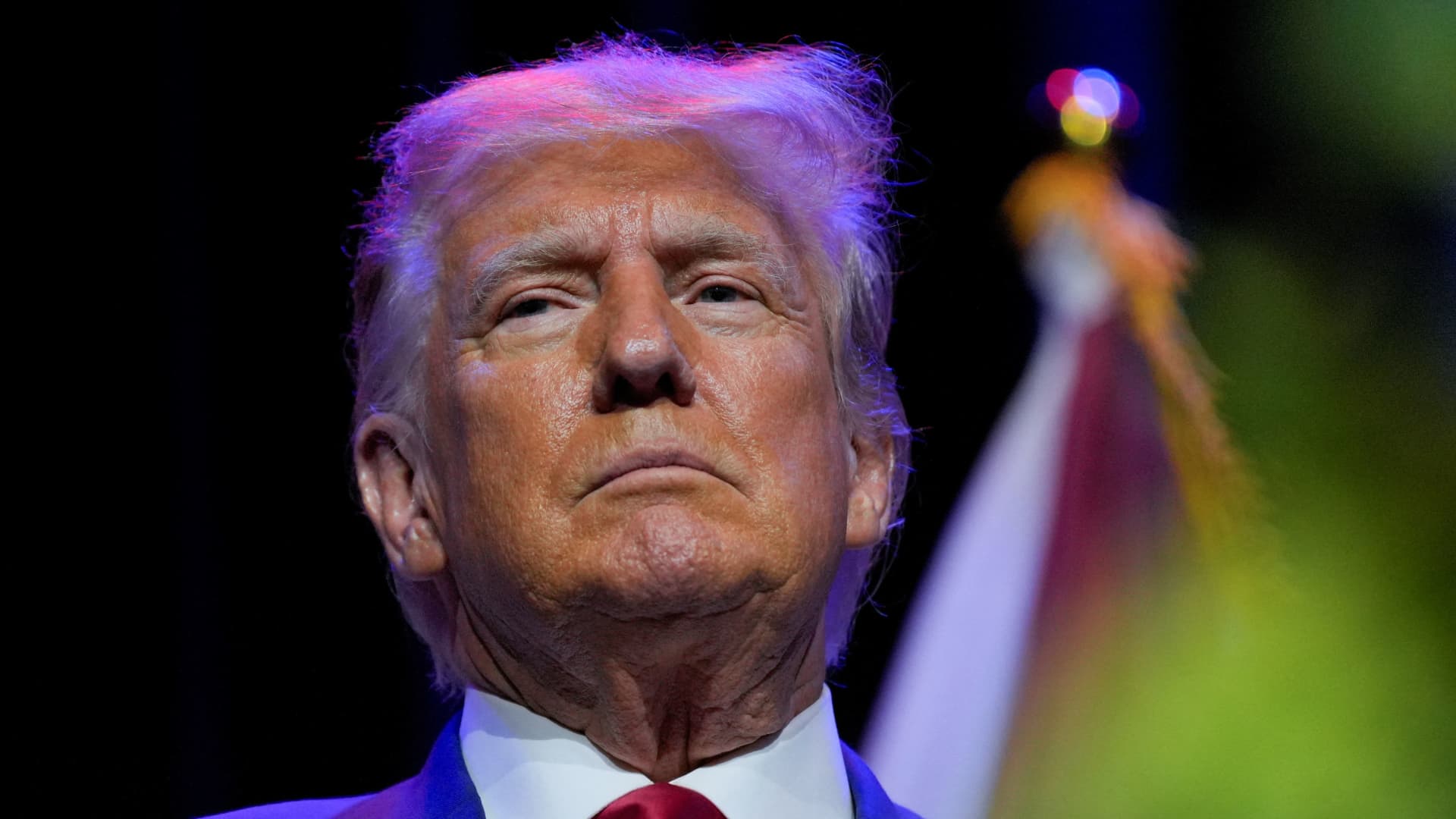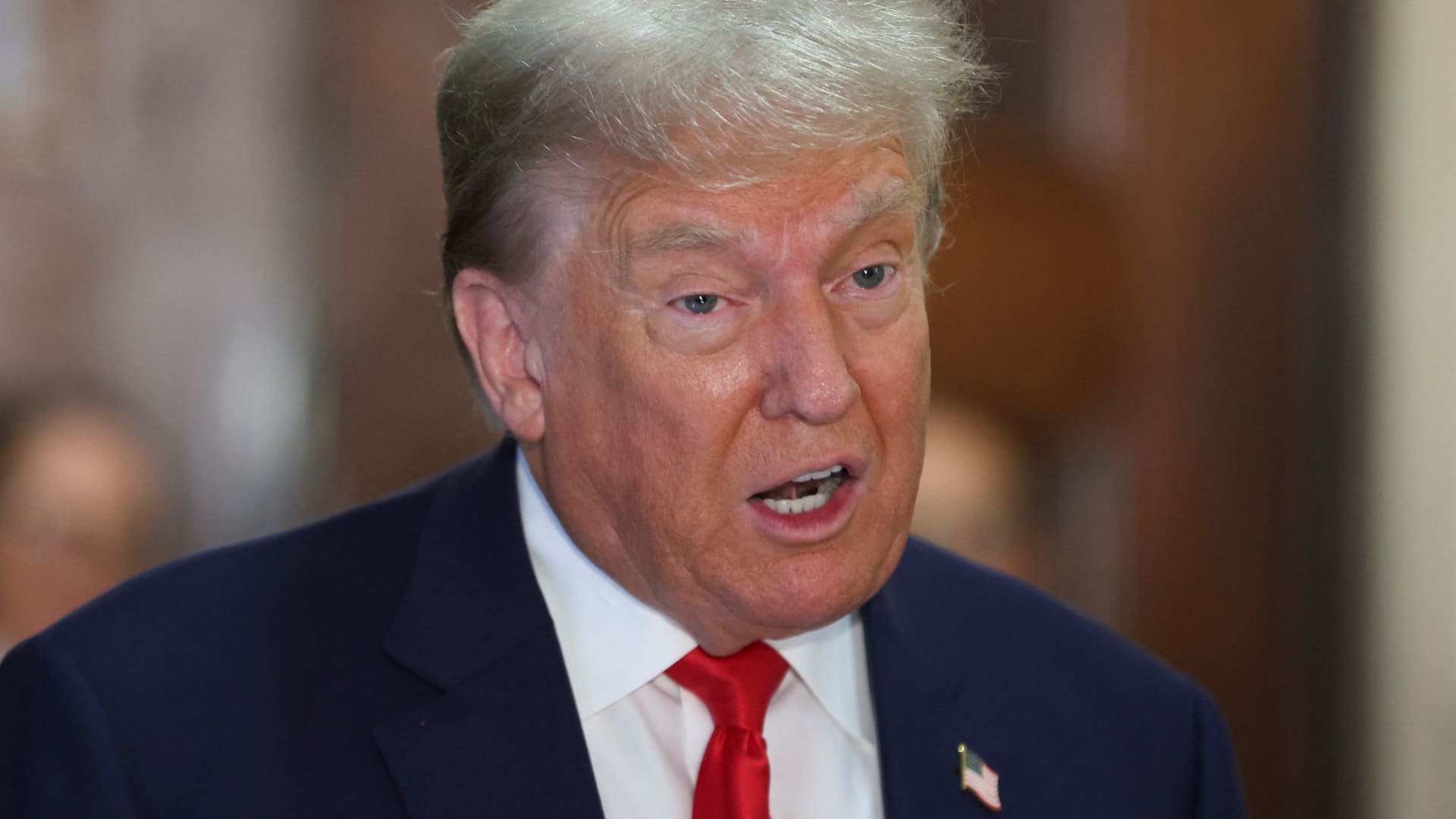Is Trump Jaundice? Unveiling The Truth Behind The Rumors
Ever wondered why Donald Trump’s skin tone seems unusually yellow? Let’s dive into the buzz around whether Trump has jaundice or if it's just another media frenzy. In this article, we’ll uncover the facts, myths, and everything in between.
When you hear the word "jaundice," what comes to mind? For many, it’s that yellowish hue on the skin or eyes, right? Well, the internet is abuzz with questions about whether former President Donald Trump is dealing with jaundice. It’s not just a random guess—there’s been plenty of speculation, and it’s time we separate fact from fiction.
While some argue it’s purely cosmetic or lighting effects, others point to possible health issues. But before we jump to conclusions, let’s explore the medical side, the rumors, and the truth behind the headlines. Stick around, and we’ll break it all down for you!
- Uiiu Movie The Ultimate Guide To Unveiling Its Secrets
- My Movies Dacom The Ultimate Guide To Discovering Your Favorite Movies
Understanding Jaundice: A Quick Overview
Let’s get one thing straight—jaundice isn’t just about yellow skin. It’s actually a symptom of an underlying health condition, often related to liver problems. When bilirubin—a substance produced when red blood cells break down—accumulates in the body, it can cause that telltale yellow tint.
Jaundice can occur in different forms, and it’s not always serious. In newborns, for example, it’s relatively common and usually harmless. But in adults, it could signal something more concerning, like liver disease, gallbladder issues, or even certain cancers.
Now, when it comes to someone as high-profile as Trump, the stakes are higher. The public is naturally curious about the health of their leaders, and jaundice isn’t something to take lightly.
- Tamilblasterscom Your Ultimate Destination For Tamil Movie Downloads
- Movierulz Romance Your Ultimate Guide To Streaming Love Stories
Trump’s Skin Tone: Is It Jaundice or Just Lighting?
One of the biggest talking points is Trump’s distinctive skin tone. Some people swear it’s jaundice, while others chalk it up to tanning products or studio lighting. But is there any truth to these claims?
Well, here’s the deal: Trump has been open about his use of self-tanning products in the past. Back in the day, he even joked about it on "The Apprentice." So, is it possible that what we’re seeing is just the result of a little too much bronzer? Maybe. But the rumors persist.
On the other hand, some medical professionals have pointed out that jaundice can sometimes be subtle, especially in its early stages. Without a proper diagnosis, it’s hard to say for sure.
What Causes Jaundice in Adults?
Let’s talk about the science behind jaundice. In adults, the condition is usually caused by one of three main issues:
- Liver disease: Conditions like hepatitis or cirrhosis can impair liver function, leading to jaundice.
- Gallbladder problems: Blockages in the bile ducts can cause bilirubin to build up in the bloodstream.
- Certain cancers: Pancreatic or liver cancer can also lead to jaundice as a symptom.
It’s worth noting that jaundice isn’t always a sign of something dire. Sometimes, it can be caused by less severe conditions, like Gilbert’s syndrome—a harmless genetic disorder that affects bilirubin metabolism.
Biography: Who Is Donald Trump?
Before we dive deeper into the health rumors, let’s take a moment to understand the man at the center of the storm.
Donald J. Trump was born on June 14, 1946, in Queens, New York. He’s a businessman, television personality, and the 45th President of the United States. Known for his flamboyant style and larger-than-life personality, Trump has been a polarizing figure throughout his career.
Here’s a quick breakdown of his life and career:
| Full Name | Donald John Trump |
|---|---|
| Date of Birth | June 14, 1946 |
| Place of Birth | Queens, New York |
| Profession | Businessman, Television Personality, Former President |
| Political Party | Republican |
Trump’s Health History: What We Know
When it comes to Trump’s health, there’s been no shortage of speculation. Over the years, he’s faced questions about everything from his diet to his exercise routine. But what do we actually know?
According to official medical reports, Trump has been in relatively good health for someone his age. However, he has faced criticism for his lifestyle choices, including his love of fast food and lack of regular exercise. These factors could potentially contribute to liver-related issues, although there’s no concrete evidence to suggest he’s dealing with jaundice.
The Science Behind Skin Tone Changes
Have you ever noticed how lighting or makeup can dramatically change someone’s appearance? It’s no secret that public figures often rely on these tools to enhance their look. But when it comes to jaundice, there’s a big difference between cosmetic changes and actual health concerns.
Jaundice is caused by an excess of bilirubin, which can affect the skin and eyes. While self-tanning products can create a similar appearance, the key difference is that jaundice is often accompanied by other symptoms, like fatigue, dark urine, or pale stools.
How to Spot Jaundice: Key Symptoms
If you’re wondering whether someone has jaundice, here are some signs to look out for:
- Yellowing of the skin or eyes
- Dark urine
- Pale stools
- Itchy skin
- Fatigue or weakness
Of course, none of these symptoms are definitive on their own. A proper diagnosis requires a medical evaluation, including blood tests and possibly imaging studies.
Public Speculation: Why Are People Talking?
Let’s face it—Trump is a magnet for controversy, and his appearance is no exception. From his signature hairstyle to his tanned complexion, everything about him seems to spark debate. But why are people so fixated on whether he has jaundice?
For one, it’s a matter of public interest. As a former president, Trump’s health is seen as a matter of national importance. Additionally, jaundice has a certain stigma attached to it, which can make it a juicy topic for the media.
But beyond the headlines, there’s also a genuine concern for Trump’s well-being. After all, he’s in his 70s, and age-related health issues are a reality for many people in that demographic.
Why Jaundice Matters: The Broader Implications
Jaundice isn’t just about skin color—it’s often a sign of something more serious. For leaders like Trump, it’s especially important to address any potential health concerns. After all, the health of a nation’s leader can have far-reaching implications.
Imagine if a president were dealing with a serious medical condition but chose not to disclose it. The consequences could be catastrophic, both for the individual and for the country as a whole. That’s why transparency is so crucial, especially in cases like this.
Debunking the Rumors: What the Experts Say
So, is Trump really dealing with jaundice? According to medical experts, it’s impossible to say without a proper diagnosis. While some have speculated based on his skin tone, others point out that there’s no concrete evidence to support the claim.
One thing’s for sure: Trump’s health is a closely guarded secret. He’s released medical reports in the past, but they’ve often been criticized for lacking detail. Until he chooses to share more information, the rumors will likely continue.
How to Approach Health Rumors: A Guide for the Public
When it comes to health rumors, it’s important to approach them with a critical eye. Here are a few tips for separating fact from fiction:
- Look for credible sources
- Check for supporting evidence
- Be wary of sensational headlines
- Consult medical professionals if you’re concerned
At the end of the day, it’s always better to rely on facts rather than speculation. If you’re worried about someone’s health, encourage them to seek professional advice rather than jumping to conclusions.
Conclusion: Is Trump Jaundice? The Final Verdict
After diving deep into the rumors and the science behind jaundice, it’s clear that the truth is still up in the air. While Trump’s skin tone has raised eyebrows, there’s no definitive evidence to suggest he’s dealing with the condition. That said, it’s always a good idea to stay informed and vigilant about health issues, especially when it comes to public figures.
So, what’s next? If you’re interested in learning more about jaundice or Trump’s health, we encourage you to explore the resources listed below. And don’t forget to share your thoughts in the comments—what do you think about the rumors? Is Trump jaundice, or is it just another media circus?
Resources and Further Reading
Thanks for reading, and remember—stay curious, stay informed, and most importantly, stay healthy!
Table of Contents
- Understanding Jaundice: A Quick Overview
- Trump’s Skin Tone: Is It Jaundice or Just Lighting?
- What Causes Jaundice in Adults?
- Biography: Who Is Donald Trump?
- Trump’s Health History: What We Know
- The Science Behind Skin Tone Changes
- How to Spot Jaundice: Key Symptoms
- Public Speculation: Why Are People Talking?
- Why Jaundice Matters: The Broader Implications
- Debunking the Rumors: What the Experts Say
Article Recommendations
- Movie Rulez2 Com 2024 Your Ultimate Guide To Stream Movies Safely And Legally
- Hannah Sellecks Marriage What You Need To Know



Detail Author:
- Name : Mr. Cornell Armstrong MD
- Username : pamela36
- Email : predovic.suzanne@walsh.com
- Birthdate : 1983-04-23
- Address : 305 Zoila Mount Baumbachfurt, VT 10777
- Phone : +1 (571) 792-6615
- Company : Daugherty Inc
- Job : Platemaker
- Bio : Autem et illum eos tempore est molestiae. Aut sapiente aut blanditiis accusantium. Dolor ratione dolores asperiores ab.
Socials
instagram:
- url : https://instagram.com/sydnee_dev
- username : sydnee_dev
- bio : Earum iusto et qui. Nihil est sit fugit omnis.
- followers : 1282
- following : 997
linkedin:
- url : https://linkedin.com/in/cummeratas
- username : cummeratas
- bio : Libero accusantium atque rem dolorum qui.
- followers : 3925
- following : 1062
facebook:
- url : https://facebook.com/sydneecummerata
- username : sydneecummerata
- bio : Enim ullam minus maxime odio.
- followers : 5266
- following : 2069